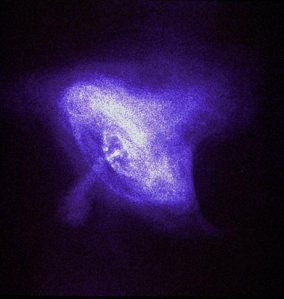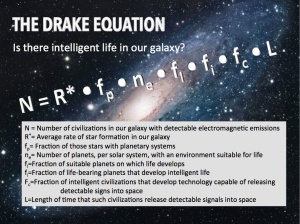 I especially liked this excerpt, which speaks to something that (as a physicist) I always found perplexing: "What physicists contemplate—the sudden emergence or “tunneling” of universes from “Nothing” — is fascinating and indeed may be cosmogenic, but the tunneling process or capacity is not Nothing. The Nothing of physicists is thick with the complete set of the laws of physics, and so between the physicists’ Nothing and Real Nothing lies a vast, unbridgeable gulf."
I especially liked this excerpt, which speaks to something that (as a physicist) I always found perplexing: "What physicists contemplate—the sudden emergence or “tunneling” of universes from “Nothing” — is fascinating and indeed may be cosmogenic, but the tunneling process or capacity is not Nothing. The Nothing of physicists is thick with the complete set of the laws of physics, and so between the physicists’ Nothing and Real Nothing lies a vast, unbridgeable gulf."
Exactly. The Heisenberg-Quantum based notions for universal origins (that of probablistic fluctuations in spacetime and energy) may be sufficient to explain the Big Bang "universe" we see around us… and possibly even the ongoing and evolving meta-universe of Lee Smolin.
But from whence didst come about the context within which quantum probabilities fluctuate?
But from whence didst come about the context within which quantum probabilities fluctuate?
Hey, just askin'...
== And science that's more than nothing ==
A giant gas cloud is on a suicide mission to the black hole at the center of our galaxy. As the cloud (named G2) spirals into oblivion, the black hole's extreme gravity is stretching it thinner and thinner, from an egg-shaped blog to a long ribbon. When it collides with the black hole, we should see some fireworks and learn tons about these weird things.
The sun's magnetic field is about to flip, in the next few months.
Hubble finds the source of the Magellenic Stream...a long ribbon of gas that stretches nearly halfway around the Milky Way galaxy.
The sun's magnetic field is about to flip, in the next few months.
Hubble finds the source of the Magellenic Stream...a long ribbon of gas that stretches nearly halfway around the Milky Way galaxy.
The Kilonova -- a new type of cosmic blast -- may result from the collision of hyper-dense neutron stars, emitting huge bursts of gamma rays.
 A kewl io9 photo essay on possible places that humans might choose to live (safe from radiation) in our solar system, starting with the "skylight" holes that were recently dicovered on Mars and the Moon, leading (it seems) to underground chambers or lava tubes. We at NASA's Innovative and Advanced Concepts (NIAC) group have funded an initial study of ways to go spelunking (robotically) into such enticing caverns. Other possibilities: Jupiter's icy moon Europa...or even the asteroid belt.
A kewl io9 photo essay on possible places that humans might choose to live (safe from radiation) in our solar system, starting with the "skylight" holes that were recently dicovered on Mars and the Moon, leading (it seems) to underground chambers or lava tubes. We at NASA's Innovative and Advanced Concepts (NIAC) group have funded an initial study of ways to go spelunking (robotically) into such enticing caverns. Other possibilities: Jupiter's icy moon Europa...or even the asteroid belt.
Astronomers discovery a graveyard for comets -- from which 'Lazarus (or zombie) comets' occasionally return to life.
Launched one month ago, NASA's IRIS spacecraft is already imaging the sun in never-before-seen detail.
Scientists test the Planetary Lake Lander in the Chilean Andes. The swimming robot is intended to float in the liquid methane seas of Titan.
 Curiosity's first year on Mars -- compressed into two minutes.
Curiosity's first year on Mars -- compressed into two minutes.
And NASA turns 55! A Tribute to Spaceflight from Ars Technica.
==Bio & Tech==
French researchers are now reporting the discovery of the biggest virus yet. The pandoravirus, as they’ve dubbed it, is 1,000 times bigger than the flu virus by volume and has nearly 200 times as many genes .
Giant viruses may lurk harmlessly in our bodies, invading the amoebae we harbor. Whether they can make us sick is an open question.
Harvard researchers create a brain-to-brain interface: allows humans to control...rats (or at least their tail) with thoughts alone.
New electronic sensors can stretch, flex, and dissolve in the living world of the human body.
Researchers have discovered a pathway that triggers the reprogramming and regeneration of retinal neurons.
Quantum software has finally left the dark ages with the creation of the first practical, high-level programming language for quantum computers. Called Quipper, it could guide the design of quantum computers and make them easier to program.
Apparently, long -term zoo studies show that when female mammals somehow choose the sex of their offspring, they are doing so strategically to produce more grandchildren. The mechanism is not known.
 Have a look at: The Human Race to the Future: What Could Happen — and What to Do, by Dr. Daniel Berleant (388 pages), the first book published by the Lifeboat Foundation.
Have a look at: The Human Race to the Future: What Could Happen — and What to Do, by Dr. Daniel Berleant (388 pages), the first book published by the Lifeboat Foundation.
The NFC Ring is a finger ring that would turn on your cell phone or other secured device when it is nearby, leaving it disabled if you lose it or it's stolen or messed with out-of-sight.
And finally: Total Recall? Fake memories implanted in mice with a beam of light....From nothing to something?

















